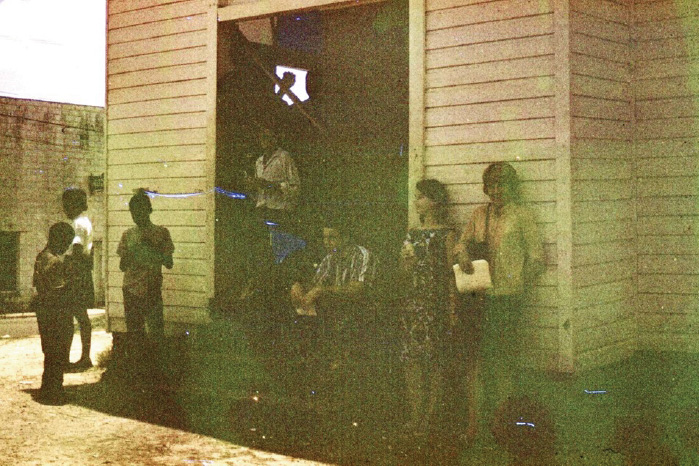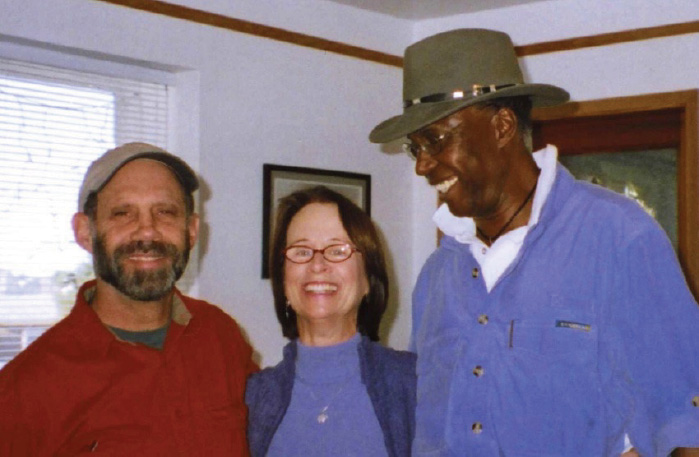Luke (Bob) Block (Student in 1965-68)
1965 Freedom Summer voter-registration worker in Alabama
Farmer
“Hey there. We came from California to help you have a better life. Is your mama home?”
– Activists’ doorbell pitch, summer 1965
In 1965, after the murder of three civil rights workers, the Rev. Martin Luther King led a protest march on Selma, Alabama, and called for hundreds more activists to descend on the South to help African-Americans claim their right to vote.
Future CSM student Luke (Bob) Block took part in this great moment in American history. He walked the five-day march on Selma and risked his life registering Black voters in Wilcox County, Alabama, in what is now known as Freedom Summer. Block and his colleagues were beaten, stalked, jailed and threatened at gunpoint on almost a daily basis. The church they used as an office was shot up by white locals, seriously injuring two local workers.
Nearly 60 years later, Block remembers mostly the fellowship and achievement.
“We got people registered. We had fun doing it,” Block says. “Now, everyone who’s running [Wilcox] county is Black.”
Block, a white Atherton graduate of Woodside High School, was 18 when, inspired by one of King’s speeches, he drove south on impulse into a world of racism and poverty beyond his imagining. Rural Black Southerners lived not just without the vote, but without electricity, paved roads, running water and other amenities they knew voting rights could win them. Their segregation was maintained by force and fear.
So, as King, the Southern Christian Leadership Conference and others lobbied for Congress to pass the Voting Rights Act of 1965 and for President Johnson to sign it, these leaders hoped bringing young whites to Alabama—fearless, naïve and more compelling to white-run media than the African-Americans who were segregation’s daily victims—would pressure the government to act.


The outsiders’ presence was controversial in the SCLC. “We never should have let you honky kids down here,” one member told Block’s colleague Maria Gitin. “Now it’s about protecting y’all.”
Love in the midst of danger
Gitin, a Bay Area native, and Block met during Freedom Summer and had a torrid love affair. Their love burned brighter because it was forbidden. The SCLC and their allies, mostly religious leaders, banned anything like extramarital sex that could discredit the young activists in that more conservative age.
Faith was key because it sustained the movement in its dangerous task. Local activists like Wilcox County farmers Bob and Georgia Crawford, who housed Block that summer and who lived 24/7 under white supremacy, took immeasurable risks.
“The Crawfords were my model for family and integrity,” Block said. “I have spent the rest of my life trying to live up to their standards. I loved a sign they had on the wall, ‘Do unto others as you would have them do unto you.’ To tell the truth, knowing them affected me more than the politics of the whole thing.”
Block says he remembers little about being physically attacked, having “blocked it out” as a psychological defense against trauma. However, Gitin, now a rights worker in Santa Cruz, and their colleague Charles Bonner, now a prominent rights lawyer in Marin County, both detail Block’s experience in their own memoirs.
“I got by on ignorance,” Block said. “I was so entitled, it was inconceivable to me that I could get hurt.”
Convicted in absentia
He did recall that being jailed felt safer. On his and Gitin’s first night in Camden, Wilcox County’s seat, they were thrown in jail and kept for two days.
“Charles Bonner, in his book, wrote that they caught us and drove us out to a judge’s house,” Block said. “Charles thought we going the way of Schwerner, Goodman and Chaney [the rights workers whose murder touched off Freedom Summer].” Instead, Gitin, Block and others were charged with conspiracy to boycott and trespass, both felonies. They were convicted in absentia after their return to California.
By then, Block’s attitude to life, and to America, had changed forever. He recalled that Dr. King spoke at their orientation about “creative maladjustment” being an appropriate response to racism.
“Once I lived there in rural Wilcox, especially out at Crawfords’, there was no question of going back to my parents’ life,” Block said. He followed his hosts’ lead and became a farmer.
“I got in touch with a huge reservoir of anger, which I fight to this day. I got in touch with my guilt for having such a privileged upbringing.” Born Robert, he changed his name to Luke to reflect that he was no longer the person he had been. He enrolled at College of San Mateo: “It was incredible. The teachers were the best I’d ever had.”
Parading without a permit
He and Gitin picketed the San Mateo County Board of Education in fall 1965 with the local NAACP as they protested unequal education for African Americans in East Palo Alto. They were cited for blocking the sidewalk and parading without a permit.
“I spoke at a couple of church groups when I got back, but I could see I wasn’t changing any minds,” Block said. Eventually, Block and Gitin broke up. He dropped out of CSM one semester short of graduation and completed his schooling at Humboldt State University. He moved to the country and married an artist, living in houses they built themselves and raising sheep while also selling art. With his second wife, a potter, Block built a kiln and, until COVID, traveled the West for art fairs.
In Alabama, African-Americans began running for office as soon as the vote drive ended. They raised expectations in the fight for voting rights that continues today.
Bonner moved to the Bay Area, graduated from law school and founded a Sausalito law practice with his son, Cabral, specializing in civil rights, police malpractice and personal injury.
Learn more about Block and Freedom Summer on Gitin’s website.
Read Gitin’s memoir, This Bright Light of Ours: Stories from the Voting Rights Fight, available online from the CSM Library.
Learn more about Charles Bonner on the Student Nonviolent Coordinating Committee website. Learn about his memoir, Tip of the Arrow.

